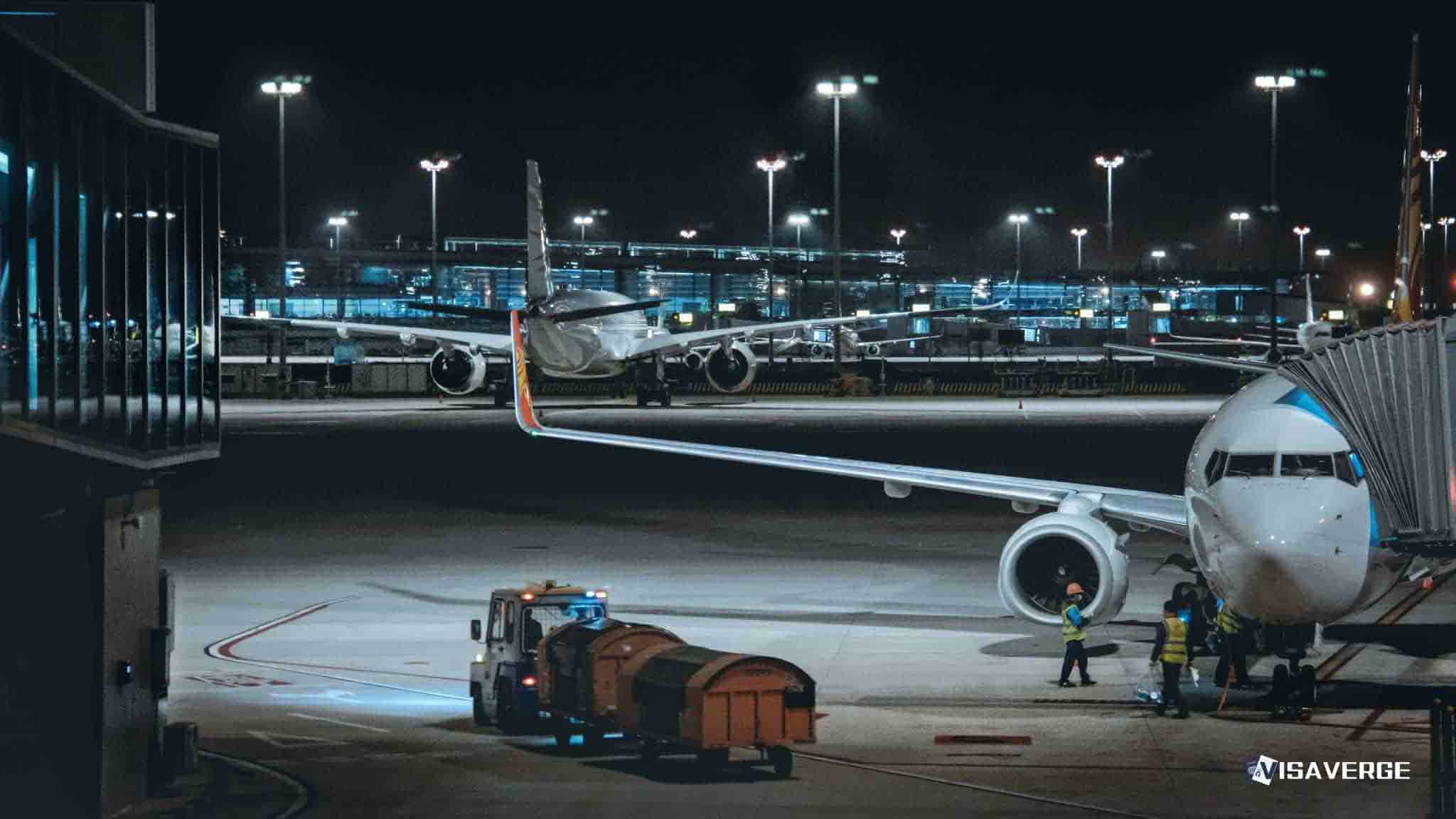(DUBAI, JEDDAH, DAMMAM, ABU DHABI) Gulf carriers Saudia and Etihad Airways are grappling with widespread operational trouble that has led to fresh flight cancellations and lengthy delays across key hubs in the Middle East and beyond, stranding travelers from Jeddah and Dammam to Abu Dhabi and onward routes as of October 15, 2025. The airlines cite a mix of operational issues, unstable weather, and regional security pressures that have built over the year and continue to ripple through schedules.
Airport screens and mobile apps told different stories at times, with some flights briefly marked canceled and later operating, adding to confusion for families, workers on tight visa timelines, and students trying to connect.

Scope of disruptions
The current wave includes at least 12 flights canceled and 307 flights delayed across Gulf operations, affecting major airports such as:
- Dubai International (DXB)
- King Abdulaziz International (Jeddah)
- King Fahd International (Dammam)
- Queen Alia International (Amman)
- Zayed International (Abu Dhabi)
Key examples and details:
- On October 14, Etihad Airways flight EY294 (Abu Dhabi → Karachi) and the return EY295 ran late for operational reasons.
- Saudia recorded three major cancellations on domestic legs (Riyadh–Jeddah and Riyadh–Dammam) plus additional delays on Dammam services. These routes anchor many long-haul connections, so a single scrub can break multiple onward itineraries.
- Etihad also canceled flights between Dubai and Sialkot (UAE618 and UAE619) and reported intermittent issues on routes touching Moscow, Malé, Hyderabad, Narita, and Munich.
- Travelers mentioned Shanghai in social posts, but recent operational notes did not confirm new Shanghai-specific cancellations.
Security dynamics have compounded the strain:
- Etihad’s suspension of Abu Dhabi–Tel Aviv service remains in place, extended through mid-July 2025, with select regional flights canceled on June 23–24.
- A June airspace shutdown after Israeli strikes on Iranian targets forced Iran, Iraq, Israel, and Jordan to close skies temporarily. That episode affected about 1,800 Europe-bound flights, including roughly 650 cancellations.
- During that period, Etihad diverted some aircraft to Baku and delayed several departures. Even after skies reopened, reroutes and crew-hour limits created knock-on delays that carriers are still clearing.
Why this matters for travelers and visa holders
A late inbound flight can cause missed connections and, critically, can lead to breaching a visa window in a third country or overstaying a permitted transit. The risk is especially high during rolling disruptions.
Those most affected:
– Students, jobseekers, and workers with fixed reporting dates
– Families on visit visas who may incur rebooking costs or overstay fines
– Transit passengers with tight visa validity
Practical immediate actions:
1. Check status directly with the airline before leaving home. Use these official sites:
– etihad.com
– saudia.com
2. Ensure contact details are current in “Manage Booking” to receive SMS/email alerts.
3. If booked via a travel agency, contact the agent for rebooking. If booked direct:
– Etihad phone: +971 600 555 666
– Saudia: use the airline’s digital channels or call centers.
4. Expect crowded terminals and longer lines at rebooking desks, especially at DXB and Abu Dhabi.
Additional guidance from VisaVerge.com and official sources:
– Ask about rerouting that keeps you within your allowed stay or consider airline-supported hotel stays that do not require exit and re-entry if immigration rules allow.
– For transit through the UAE, short-term transit visas can help during extended layovers. See the official guidance on the UAE 48/96-hour transit visa at the UAE Government Portal.
– Always confirm nationality eligibility and whether your airline can sponsor the transit permit.
– If delays push you past a visa deadline, speak with airport immigration officers early; they can explain options and any fines that may apply.
If you have a tight visa window, act early: airlines, immigration, and airport transfer desks can sometimes coordinate to avoid avoidable overstays.
What’s driving the flight cancellations and delays
Several overlapping factors are contributing to the current disruptions:
- Weather swings
- Sandstorms and extreme heat have reduced ground visibility and stressed aircraft cooling systems.
- These conditions slow boarding and turnarounds and can push flights into crew “duty time” limits, forcing postponements.
- The Gulf’s weather pattern has been less predictable this year; both airlines are investing in better forecasting and fallback planning.
- Operational strain
- Tight crew rosters and limited aircraft availability put pressure on on-time performance.
- A single late-arriving aircraft can disrupt a full day’s schedule on busy domestic links like Riyadh–Jeddah or Riyadh–Dammam.
- This effect magnifies across both carriers’ wider networks.
- Security and airspace changes
- Avoiding certain corridors adds distance, fuel burn, and block time.
- The June airspace closures showed how quickly changes can ripple through the system.
- Reroutes through Saudi Arabia, Egypt, Turkey, Azerbaijan, and Turkmenistan helped keep flights moving but lengthened journeys and strained maintenance and crew cycles.
Net effect: the operating day becomes fragile. Airlines must balance safety, crew rest rules, and maintenance while trying to recover punctuality. When weather worsens or a corridor closes, the network can tip back into delay.
What the airlines are doing
- Protection and reaccommodation
- Both carriers are offering alternative flights or refunds where applicable.
- Gate agents and call centers can place passengers on the next available service; availability is tighter on peak routes.
- Schedule cleanup
- Carriers may pre-cancel select flights to protect the rest of the schedule rather than risk day-of scrubs. This can reduce last-minute surprises but may feel harsh.
- Cautious growth
- Etihad launched a busy growth week in October with inaugural flights to Krabi, Medan, Phnom Penh, and Addis Ababa, and has announced 31 new destinations in 12 months, targeting more than 125 by 2030.
- Both carriers emphasize that safety comes first, and short-notice changes remain possible.
Practical tips if you’re in transit today
- Keep boarding passes, delay notices, and receipts. These are required if you claim expenses later.
- Ask about meal or hotel vouchers when delays are extended; eligibility varies by cause and local rules.
- If you face a visa cutoff, present your case early at the transfer desk and with immigration officers. Many airports work with airlines to prevent avoidable overstays during large disruptions.
- If rerouting requires changing countries, double-check entry rules before accepting the alternate routing.
- Stay logged into airline apps and keep phone notifications enabled for last-minute updates.
Bottom line
Saudia and Etihad Airways are dealing with a tough mix of weather, operational strain, and security pressures that continue to produce flight cancellations and rolling delays. While both carriers are working to steady schedules, travelers should:
- Plan for extra time
- Keep bookings flexible where possible
- Monitor airline channels closely for updates
- For visa-sensitive trips, act early, request reroutes that fit your window, and use official resources like the UAE transit visa guidance to stay compliant and avoid extra costs
Travel advice summary: check before you travel, keep documentation, and act early on visa or reroute concerns to minimize disruption and potential fines.
This Article in a Nutshell
Saudia and Etihad Airways experienced significant operational disruptions on October 15, 2025, resulting in at least 12 cancellations and 307 delays across major Gulf hubs such as Dubai, Jeddah, Dammam, Amman and Abu Dhabi. Drivers include unpredictable weather—sandstorms and extreme heat—tight crew rosters, limited aircraft availability, and regional security-related airspace closures that forced reroutes and crew-hour constraints. Notable incidents included Etihad delays on EY294/EY295 and cancellations of UAE618/UAE619, along with Saudia domestic cancellations on Riyadh–Jeddah and Riyadh–Dammam. Travelers, particularly those with fixed visa windows like students and workers, should check airline channels, keep contact information current, retain receipts for claims, and request reroutes that preserve visa validity. Both carriers offer reaccommodation and refunds; some pre-cancellations are being used to protect broader schedules while operational recovery continues.







